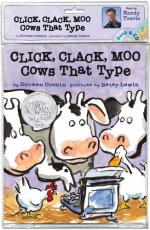|
This section contains 747 words (approx. 3 pages at 300 words per page) |

|
One of the fundamental issues in programming languages is the "types" of objects or data primitives they afford to programmers. Fundamentally, these object types fall into the following categories:
- Boolean--this is a type, sometimes abbreviated bool, for representing truth value, which can take the logical values True or False (sometimes represented as 1 and 0, but without the normal numeric connotation). A Boolean type typically cannot be converted to anything else.
- Integer--this is a type, sometimes abbreviated int, for representing whole numbers, either positive of negative. The integer type has siblings short and long (sometimes called short int and long int), vide infra.
- Floating point--this is a type, sometimes abbreviated float, used to represent rational numbers. The float type has siblings double and long double, vide infra.
- Character--this is a type, sometimes abbreviated char, used to represent alphanumeric strings.
The basic integer object type in C, C++, Java, and other...
|
This section contains 747 words (approx. 3 pages at 300 words per page) |

|


